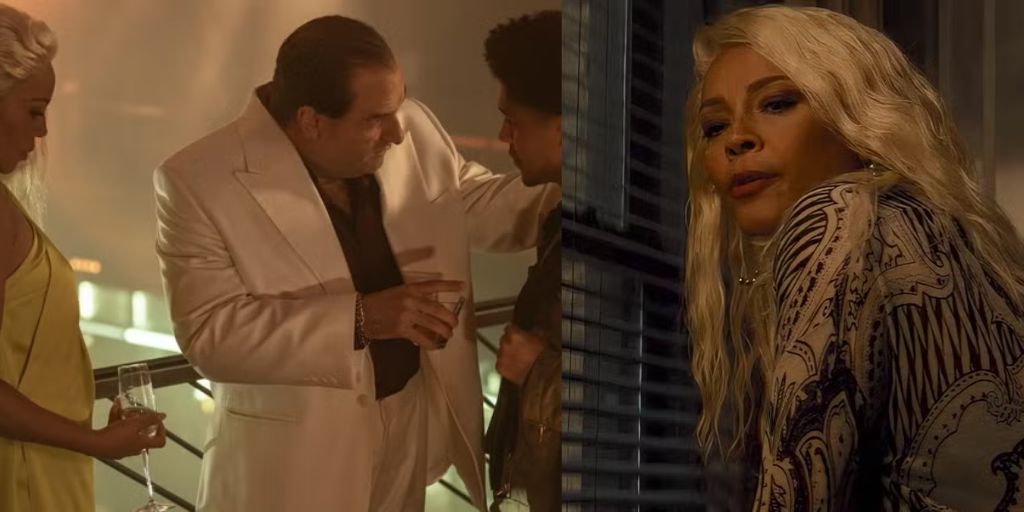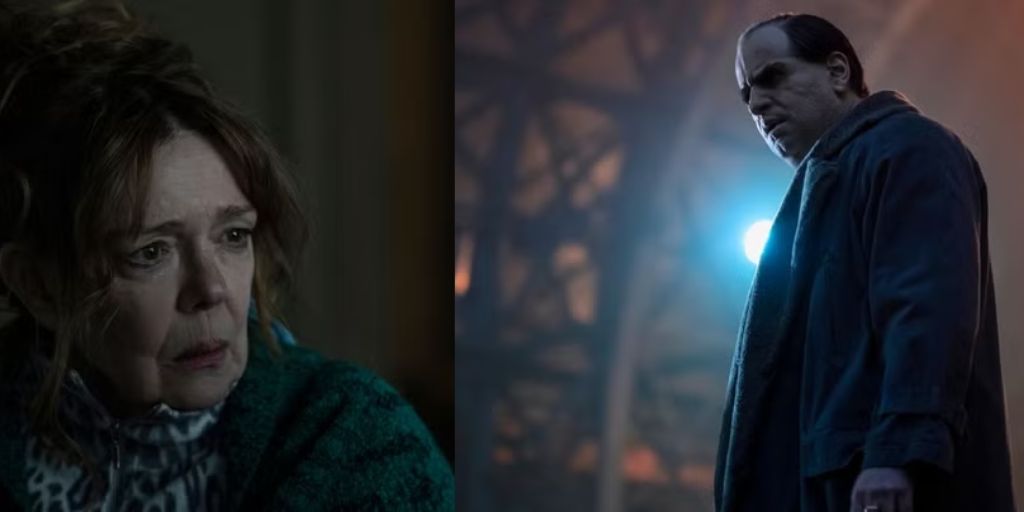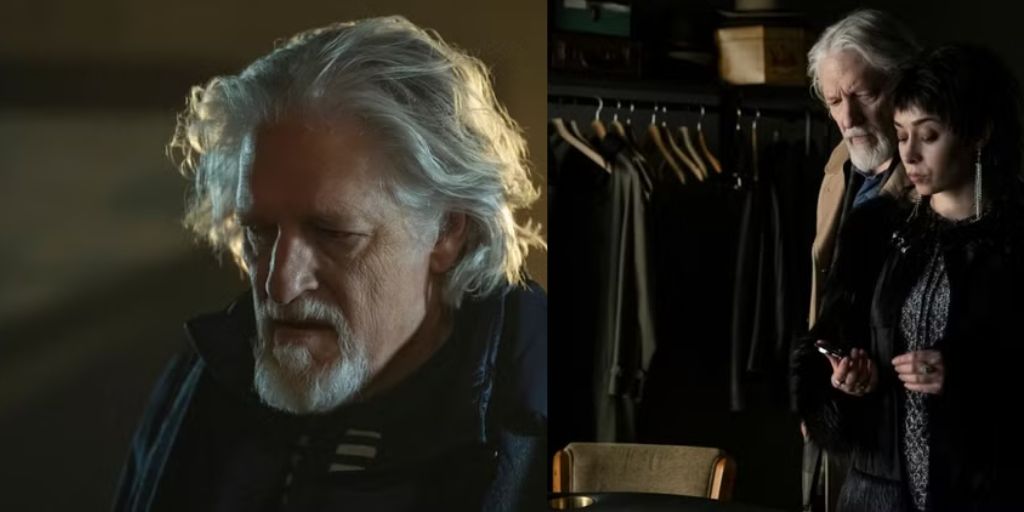In the latest episode of The Penguin, titled “Top Hat,” the show delivers a shocking twist with the death of Salvatore Maroni (Clancy Brown), a key figure in Gotham’s criminal underworld.
While the episode continues to build on the drama between the various factions vying for power in Gotham, it also signals the end of one of the last ties to the city’s classic mob scene.
For many viewers, it’s an unexpected and abrupt turn, as neither Victor (Rhenzy Feliz) nor Oz’s mother (Deirdre O’Connell) meet their end this week.
Instead, the mob boss’s death sets the stage for the show’s focus to shift further away from Gotham’s traditional crime families, a move that has some fans questioning whether Maroni’s character was given enough time to shine before his untimely demise.
Though Maroni’s death feels inevitable given the series’ buildup, it is ultimately a disappointment for those familiar with his rich comic book legacy.
It’s clear that the character was set up to be more significant in The Penguin, but by the end of Episode 7, he is reduced to little more than a plot device.
The death, while impactful in the moment, underscores how The Penguin could have made better use of Maroni’s established history in Gotham mythology, especially considering how crucial he has been in Batman lore for decades.
Salvatore Maroni’s Legacy in Gotham Mythology
Salvatore Maroni is a pivotal figure in the history of Gotham. His character first appeared in Detective Comics #66 in 1942 and has played an important role in shaping Gotham’s criminal show ever since.
Maroni is known for being a ruthless mob boss who controls much of Gotham’s underworld. However, his most significant claim to fame is his role in the creation of one of Batman’s most iconic villains: Two-Face.
In the landmark comic book story The Long Halloween, Maroni’s actions directly contribute to Harvey Dent’s transformation into the dual-faced villain. Maroni, in a fit of rage, throws acid in Harvey Dent’s face, leading to Dent’s disfigurement.
This act sets the stage for the creation of Two-Face, a villain whose internal struggle between his good and bad sides mirrors Gotham’s ongoing battle between justice and corruption.
Maroni’s influence on the Batman mythos is undeniable, and yet, The Penguin seems to miss the opportunity to fully show this rich history.
Despite Maroni’s deep ties to Gotham and Batman’s legacy, The Penguin seems content to treat him as a secondary character. Throughout his time on the show, Maroni’s impact on the plot is minimal at best.
His interactions with the other characters, especially with Oz, feel shallow and lack the depth that his comic book counterpart would typically carry.
In The Penguin, Maroni is presented as little more than a washed-up mob boss, a character who has clearly seen better days and is no longer the powerful figure he once was.

While this fits with the theme of the show’s scheme of the changing criminal show in Gotham, it also undermines the character’s potential to contribute meaningfully to the story.
The Death of Maroni: A Missed Opportunity
The way in which Maroni dies in The Penguin feels almost like an afterthought. The episode’s climax has Maroni confront Oz, who manages to escape from his clutches.
The two briefly struggle in a trailer, and in the midst of their fight, Maroni suffers a heart attack and dies. This anticlimactic death feels rushed and unsatisfying, especially given Maroni’s importance in Gotham’s criminal hierarchy.
The suddenness of Maroni’s death works in some ways. It plays into the show’s theme of the inevitability of death in the criminal underworld.
In many gangster stories, characters like Maroni meet their end unexpectedly, as seen in iconic moments like Tony Soprano’s (James Gandolfini) sudden fade to black in the final episode of The Sopranos or the shocking deaths in The Departed.
These deaths are often intended to reflect the unpredictable and brutal nature of the criminal world. Maroni’s death fits this mold, but it also feels underwhelming because of the lack of attention given to his character development.
For the most part, Maroni’s role in The Penguin is defined by his brief interactions with other characters. He is tricked by Oz into trusting him, and he forms a short-lived partnership with Sofia (Cristin Milioti), a character who quickly emerges as the true power player in Gotham.
Throughout this arc, Maroni is portrayed as a tired and defeated figure, someone who has long since lost the ambition and power that once made him a formidable foe in Gotham’s underworld.
While it is clear that the show wants to focus on Sofia’s rise to power, the sidelining of Maroni makes his death feel unearned and lackluster.
Clancy Brown’s Performance: A Waste of Talent?
Clancy Brown is an actor known for his deep voice and commanding presence, qualities that have made him a standout in both animated and live-action roles.
Brown’s portrayal of Maroni in The Penguin certainly reflects his tough, no-nonsense approach to playing characters.
His Maroni is a physically imposing figure who uses his strength and experience to face the dangerous world of Gotham’s criminal underworld. However, despite the potential for Brown to truly bring Maroni to life, The Penguin never fully utilizes his talents.
Brown has proven his ability to portray complex characters in other comic book adaptations. He voiced Mr. Freeze in the 2004 animated series The Batman and played The Blacksmith in Marvel’s Daredevil Season 2. Both of these roles allowed Brown to show the darker, more tragic sides of his characters.
Unfortunately, The Penguin does not give him the same opportunity. The series never allows Maroni to have a true moment of emotional depth, nor does it shows his backstory or motivations in any meaningful way.
Instead, Maroni’s character is relegated to being a mere stepping stone in the larger power struggles unfolding in Gotham.
One of the few moments where Maroni stands out is in Episode 5, when he survives an assassination attempt by Oz. This scene hints at Maroni’s toughness and resourcefulness, but it also serves to highlight how the show fails to build on this potential.
In comparison to the other villains in The Penguin, Maroni is not given the chance to make a lasting impression.
Sofia’s confrontation with Eve Karlo (Carmen Ejogo) in Episode 6, for example, allows both characters to showcase their strength and resolve.
Even Johnny Viti (Michael Kelly), who meets a sudden end in Episode 7, has a more memorable moment when he delivers a monologue about his regrets before being shot in the head.
Maroni, on the other hand, never gets the chance to show his emotional complexity or show his past connections to Gotham’s old crime families, such as the Falcones and the Waynes.
It’s clear that the show is positioning Sofia as the central villain of the series, with Maroni serving as a temporary obstacle in her path. But this decision comes at the cost of giving Maroni the depth and gravitas he deserves.
Brown’s performance is strong, but it is ultimately wasted in a role that does not fully capitalize on his skills. Fans of the actor, and of the character, will likely be left wanting more after his abrupt exit from the show.
The Penguin: A New Focus on Sofia Gigante
With Maroni’s death marking the end of Gotham’s old guard, the series seems poised to focus more on Sofia Gigante, the ambitious villain played by Cristin Milioti.
Sofia has quickly become one of the most compelling characters in The Penguin, thanks to Milioti’s scene-stealing performance.

Her rise to power in the criminal world is a central focus of the series, and it is clear that she will be the one to reshape Gotham’s criminal show in the coming episodes.
As The Penguin progresses, it will be interesting to see how the show balances Sofia’s dominance with the lingering presence of other villains, such as Oz.
The show has made it clear that Sofia is the one to watch, and her continued rise to power will likely be the focal point of the finale.
However, with the death of Maroni and the sidelining of other traditional Gotham criminals, it’s uncertain what role the old guard will play in the new order that Sofia is working to establish.
For now, Maroni’s death marks the end of an era in Gotham’s criminal underworld. The show has shifted its focus, and while it may have missed the opportunity to fully show the character’s potential, it has certainly set the stage for the rise of a new villain in Sofia Gigante.
As The Penguin moves toward its finale, fans will be watching closely to see how the series continues to evolve and whether it can redeem its treatment of one of Gotham’s most iconic mob bosses.
Maroni’s death may have served a narrative purpose, but it feels like a missed opportunity to go deeper into one of Gotham’s most iconic figures.
The Penguin has yet to fully take advantage of the character’s rich backstory, leaving fans to wonder what could have been.
With the show’s focus shifting toward Sofia, it remains to be seen how Maroni’s death will shape the future of Gotham’s criminal show.





